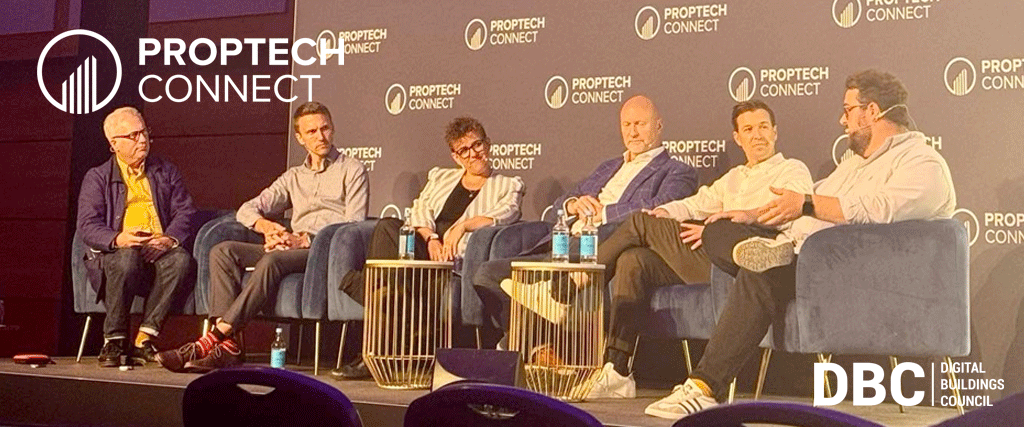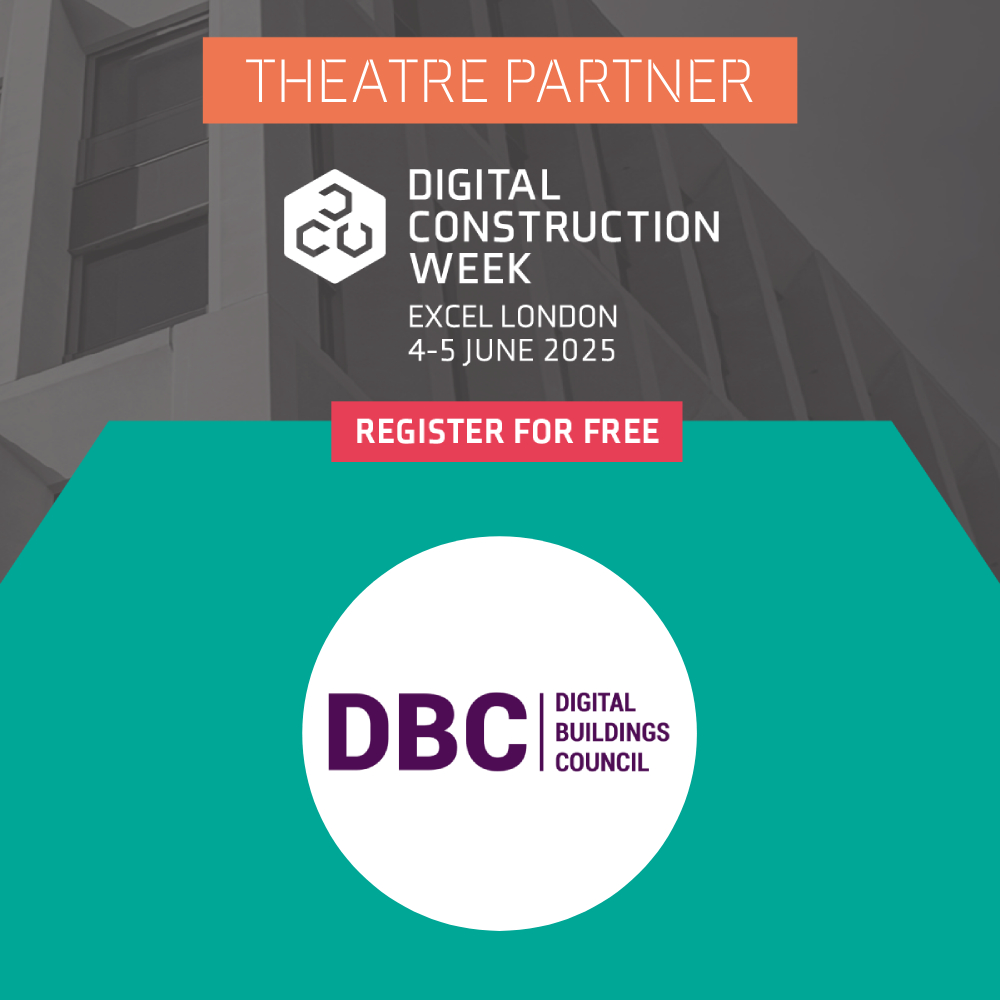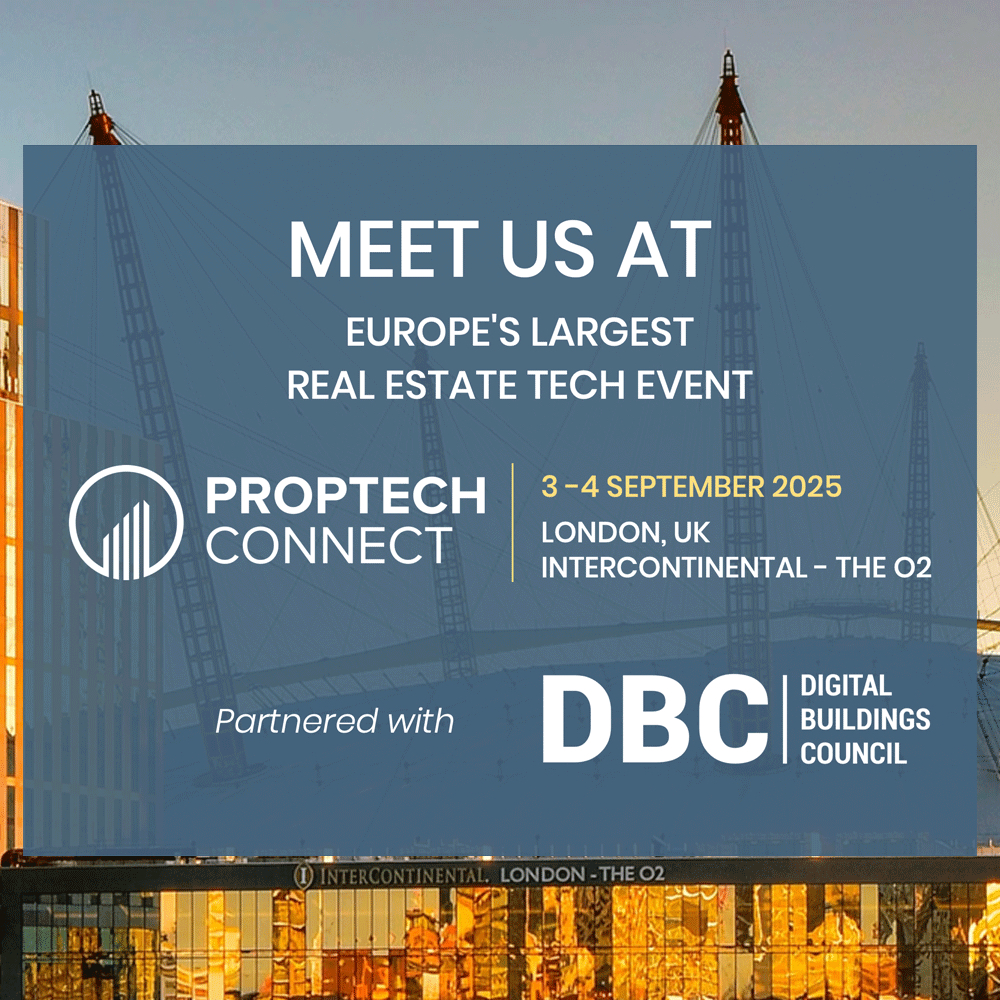
As part of the DBC’s event partnership with PropTech Connect in September this year, our Executive Officer Justin Kirby moderated the ‘A Holistic Approach to Maximising ROI in Smart Buildings’ panel. The discussion is connected to our ‘Project costing and the business case’ Working Group launched with others at the show, and the panel included the following experts from various sectors of the smart building industry:
- Mike Hook, Owner/Director at LMG
- Emilia Cardamone, Associate Director, Real Estate Digital at Turner & Townsend
- Jonathan Treece, Director – Digital Lead, The Design House at Barclays
- Johan Wiksell, Head of smart homes and buildings at JM
- James Kendall, European Regional Director at SwiftConnect
There’s a 10 minute AI podcast summary of the panel that Justin has posted on LinkedIn, but we’ve included the AI summary of key insights below from these industry experts who gathered to explore the challenges and strategies involved in demonstrating the return on investment (ROI) for smart buildings:
Executive Summary
The conversation began with an introduction to the Digital Buildings Council’s mission, highlighting the importance of early cost and ROI models in project planning. Panelists discussed varying ROI perspectives for landlords and tenants, the impact of sustainability on energy efficiency, and the significance of user experience over mere entry security. They emphasized a holistic approach to ROI that includes effectiveness, efficiency, experience, health/safety/security, and sustainability, while navigating the complexities of quantifying soft benefits. Practical guidance was provided, recommending a user-centric strategy, establishing quantifiable metrics early, and fostering collaboration between construction and operation phases to ensure long-term success and scalability in smart building initiatives.
Main Themes:
- The Challenge of Quantifying ROI: While quantifiable benefits like energy savings and space optimisation are readily apparent, the “softer” benefits like user experience, talent retention, and productivity remain harder to measure, despite being acknowledged as key value drivers.
- Moving Beyond the 3-30-300 Rule: The traditional focus on utilities, rent, and payroll costs needs to shift towards a more holistic view encompassing user experience, well-being, and alignment with broader business outcomes and ESG goals.
- Importance of User-Centricity: Understanding the needs and expectations of building occupants is paramount for identifying relevant use cases and their success metrics, as part of demonstrating the value proposition of smart building technology.
- From Pilots to Scalable Solutions: Initial pilot projects should be designed with future scalability in mind, using standardised specifications and open ecosystems to avoid costly and complex integration issues.
- Collaboration and Partnership: Finding a champion within the client organisation who can advocate for the technology and navigate internal stakeholders is crucial for successful adoption and value realisation.
Key Insights and Facts:
- Cost-Effectiveness vs. Value Creation: ROI discussions often focus solely on cost savings, but true value lies in enhancing user experience, fostering innovation, and achieving business outcomes.
- Misaligned Stakeholder Perspectives: Landlords and tenants often have divergent views on success metrics and ROI, hindering project alignment and value realisation.
- Technology as a Tool, Not a Solution: Technology itself is merely a means to an end. Understanding the desired outcomes and aligning them with appropriate technologies is essential.
- Holistic Area-Level Thinking: Expanding the focus from individual buildings to entire areas or districts can unlock new opportunities for value creation, such as microgrids and shared mobility solutions.
- Data Visualisation for Impact: Clearly presenting ROI data through interactive dashboards and visualisations can significantly enhance stakeholder understanding and buy-in.
Practical Guidance:
- Start with a Clear Strategy: Define your desired outcomes, identify potential value creation opportunities, and outline your approach to technology adoption.
- Focus on User Experience: Engage with building occupants to understand their needs and tailor solutions to enhance their experience and well-being.
- Prioritise and Pilot: Select a few key use cases for initial implementation, focusing on demonstrable benefits and scalability.
- Build a Strong Team: Engage with experienced professionals earlier on a project, including cost consultants, MSIs, and contractors, to ensure project success and value delivery.
- Embrace Open Ecosystems and Standards: Prioritise interoperability and future-proofing to avoid vendor lock-in and ensure long-term flexibility.
Conclusion:
Demonstrating ROI in smart buildings requires a shift from a narrow focus on cost savings towards a holistic approach that encompasses user experience, business outcomes, and quantifiable benefits across multiple dimensions. By embracing user-centricity, fostering collaboration, and leveraging data visualisation, the industry can unlock the full potential of smart building technology and deliver tangible value to all stakeholders.
But there is more work still to be done, particularly with bridging the gap between construction and operation and a possible starting place is the sharing of lessons learned by all sectors of the smart building industry. That’s something we hope to explore at PropTech Connect next year.
In the meantime, stay connected by following the DBC on LinkedIn for the latest updates, events and insights from the founding members and reach out to learn how to join our community and contribute to our mission.




